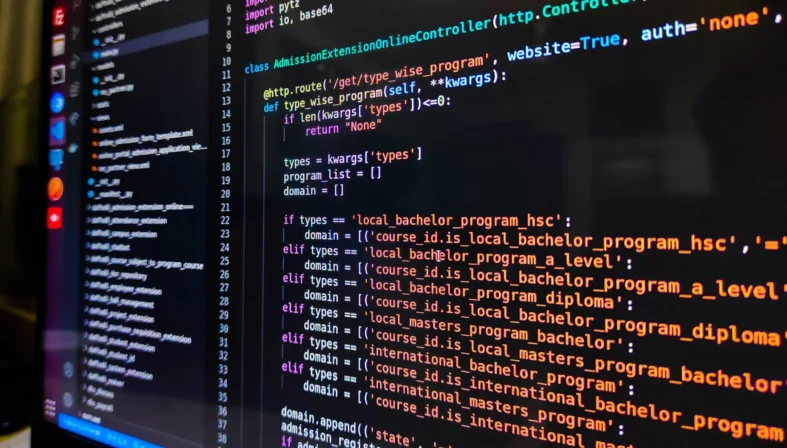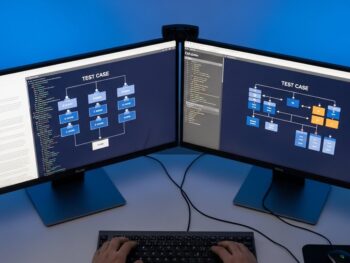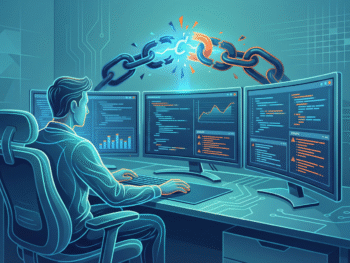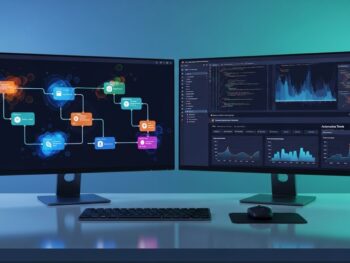New, game-changing technologies have emerged in the ever-changing field of software engineering as a result of the relentless search for efficiency and creativity. Platform engineering, AI coding assistants, and AI-augmented software engineering (AIASE) are predicted to achieve widespread acceptance in the next 2-5 years, according to the Gartner, Inc. Hype Cycle for Software Engineering, 2023.
When it comes to Quality Assurance, software testing is one area where Chat GPT is predicted to thrive. In a previous post we found out what ChatGPT is and how it may be an excellent AI tool for software testing.
Half of all business software developers will be using ML-powered coding tools by 2027, up significantly from the present 5%, according to Gartner's predictions.
This post digs into the anticipated massive effects of these technologies on the market, with a particular emphasis on the forecast that half of all business software developers will be using coding tools driven by machine learning by the year 2027 in relation to these three areas:
1. Enhancing Efficiency and Joy with AI Coding Assistants
Software developers often feel overworked and unable to provide features quickly enough when the demand for software exceeds organizational capability. Half of all business software developers will be using ML-powered coding tools by 2027, up significantly from the present 5%, according to Gartner's predictions.
This shift is heavily reliant on AI coding helpers built on top of foundational models. These software coding helpers are more than just tools; they are accelerators that increase developer happiness and productivity. Source Code creation and other repetitive duties may be automated by AI coding assistants, allowing developers more time for high-value jobs. By changing their attention, enterprises may quickly offer new features with their current workforce.
2. Software Engineering with AI: Unleashing Innovation and Streamlining Processes
From creating boilerplate code to producing docstrings, there are a lot of mundane and repetitive jobs involved in the software development life cycle. The goal of the AIASE tools is to automate these processes so that software developers may focus on creating features and other high-impact work.
Enhanced productivity is only one of the many advantages of AIASE. Software development becomes more efficient when engineers are engaged and happy, and when engineering resources are allocated to high-priority business objectives. The creation of self-healing tests and the discovery of nonobvious code pathways are two areas where quality teams might benefit from AIASE. The software development process is further improved by these developments, which identify faults, provide remedies, and automatically produce test cases.
3. Engineering Platforms: Handling Digital Complexity
Many digital businesses are embracing platform engineering approaches to help them manage the ever-changing technological ecosystem. According to Gartner, by 2026, 80% of software engineering companies will have platform teams that offer reusable services, components, and tools for application delivery. This technique is expected to become standard practice.
The primary goal of platform engineering is to provide product and development teams with platforms that are safe, integrated, and consistent. These platforms enable users to effectively manage cost and risk while delivering company value via self-service tools, capabilities, and procedures. To keep up with the times and meet the challenges of the digital age, the industry has made a deliberate move towards platform engineering.

The 2023 Software Engineering Hype Cycle shared by Gartner in November, 2023.
How Software Testing is Getting Some Benefit from AI
Al-powered equipment are becoming more common in our daily lives, and Chat GPT represents a major breakthrough in this area. This model is cutting-edge and powerful because of its use of Deep Learning and Natural Language Processing (NLP). In the end, it may provide responses that seem natural and make sense to humans. Just because you think something doesn't make it so.
There is benefit in using Chat GPT for coding right now, and it will only become better as time goes on, and more AI tools are almost certainly in the future.
The most apparent use case is in the development and editing of test scripts, followed by the usage of test data.
For example, it is possible to convert selenium code from java to javascript although it rneeds some assistance from humans to mend and improve the test scripts... although it may be responsible for much of the work.
Inside TestQuality, one of the things that we are focusing on is developing an artificial intelligence that can correctly create test scripts and change them. And from our point of view, the final aim is one in which you essentially have a conversation with a bot about how to build test scripts and how they may be improved. (Similar to the code translation described above, but applied to your complete test code). This sort of features are in our roadmap in the near future.
As mentioned, Chat GPT might be useful in certain circumstances such as being able to efficiently build test scenarios in Gherkin by first assessing the requirements and then translating those requirements into comprehensive methods for carrying out the scenarios., however at the moment the test script needs a QA professional or Test developer to evaluate and validate it. Needless to say that Chat GPT has the potential to be efficient. Time savings may be lost if this doesn't happen. If the development team fails to catch an issue, fixing it might take longer and cost more money.
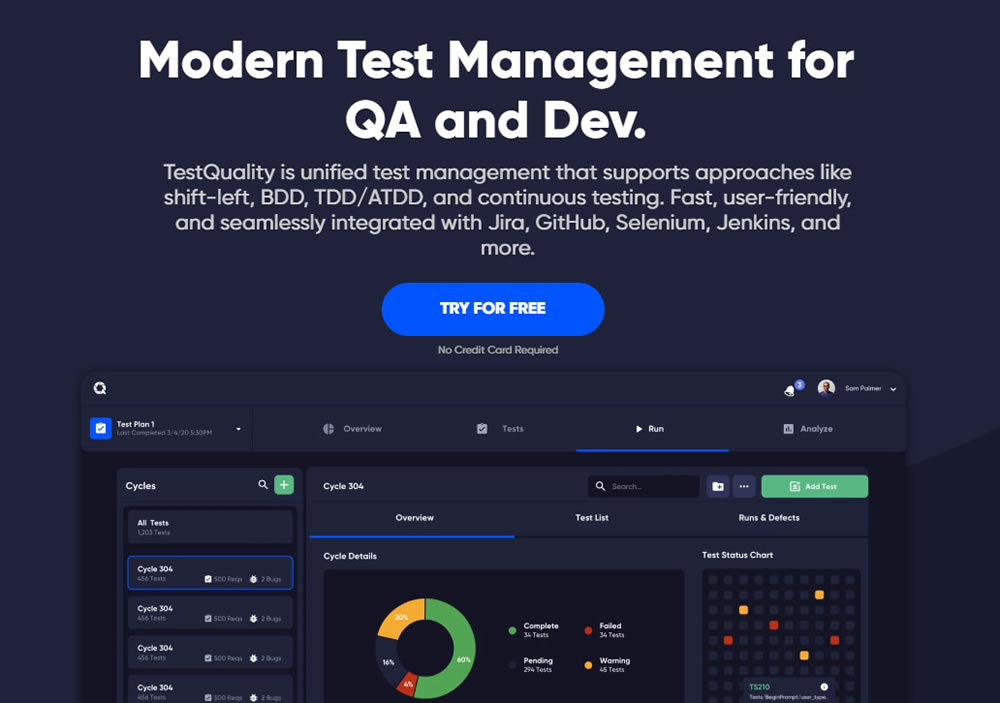
In summary
On the brink of a new age in software engineering, tools driven by artificial intelligence and machine learning are about to change the game when it comes to developing, testing, and running software. Organizational strategies and tactics will undergo a profound upheaval, according to Gartner's projections, which also point to a technology revolution. Adapting to these innovations will lead to a software development environment that is more dynamic and innovative, and it will also promote efficiency. Now is the time, and artificial intelligence's ascent in software engineering will reshape the boundaries of digital possibility.


